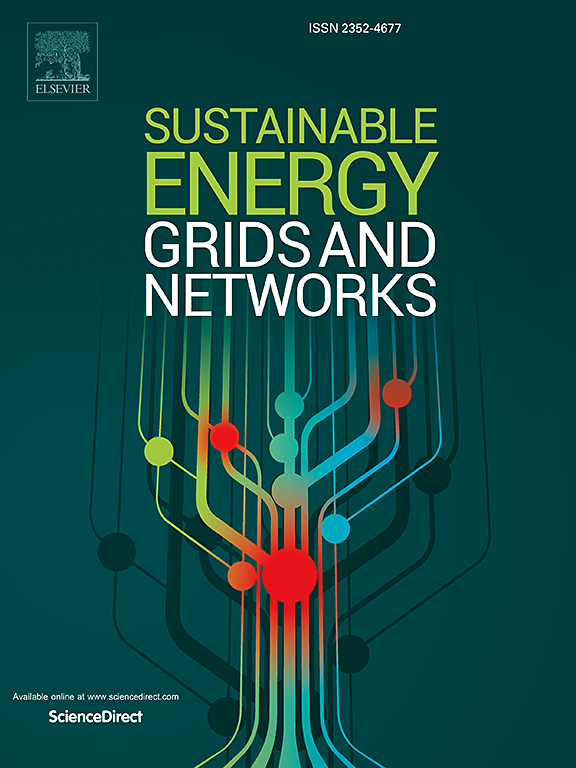Coordination of medium-voltage distribution networks and microgrids based on an aggregate flexibility region approach
Abstract
The large-scale integration of distributed energy resources (DERs) presents operational challenges for medium-voltage distribution networks (MVDNs) and microgrids (MGs) because the conventional centralized scheduling framework lacks of an effective information exchange mechanism for coordinating the scheduling between MVDNs and MGs while supporting privacy concerns. The present work addresses these issues by leveraging a convex hull-based aggregate flexibility region (AFR) associated with the scheduling capability of massive DERs to coordinate the scheduling between an MVDN and MGs efficiently with very limited information exchange. Specifically, the AFR associated with the DERs in an MG is constructed based on the convex hull fitting method, and coordinated scheduling is facilitated by introducing safety operation constraints for the MVDN based on the AFRs of the MGs. Moreover, the coordination model is transformed into a readily solvable quadratically constrained quadratic programming problem by applying second-order cone transformations. The results of numerical computations applied to an IEEE 33-bus test system demonstrate that the obtained AFRs effectively characterize the flexible scheduling capability of DERs, and the proposed coordinated scheduling mechanism between the MVDN and MGs reduces the network losses and voltage deviations of the MVDN, while preserving information privacy.

 求助内容:
求助内容: 应助结果提醒方式:
应助结果提醒方式:


